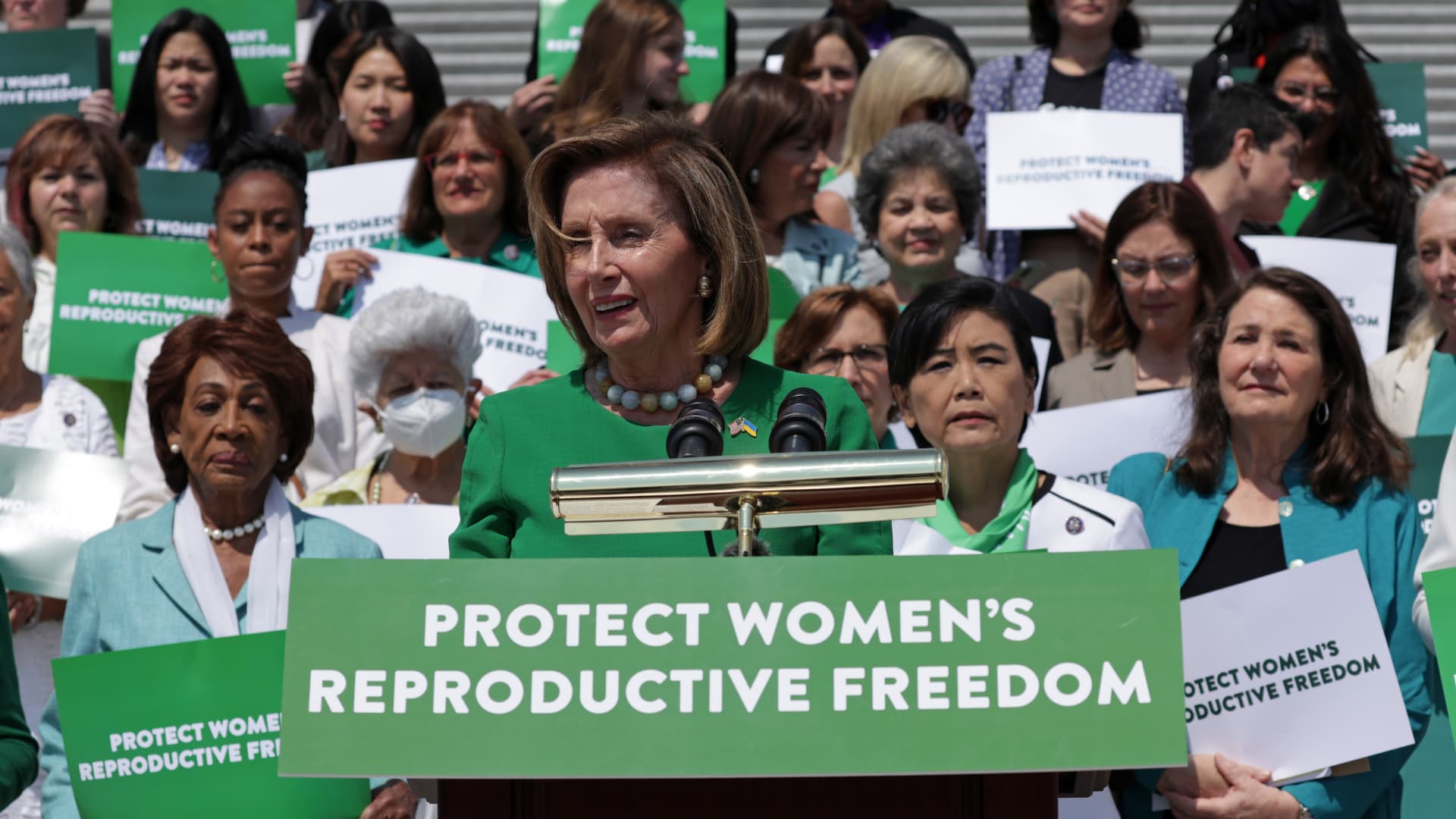
U.S. Speaker of the House Rep. Nancy Pelosi (D-CA) speaks during a press event on reproductive right in front of the U.S. Capitol July 15, 2022 in Washington, DC. The House is voting on the Women’s Health Protection Act today.
Alex Wong | Getty Images
WASHINGTON — The House passed two bills Friday on largely party-line votes aimed at protecting abortion rights in the wake of the Supreme Court’s decision to overturn the 1973 landmark Roe v. Wade ruling.
Lawmakers approved an updated version of the Women’s Health Protection Act, which would codify abortion rights protections into federal law, in a 219-210 vote. The House also passed the Ensuring Access to Abortion Act, which would ban states from punishing those who travel out of state for reproductive health care, in 223-205 vote.
The House last passed the Women’s Health Protection Act in September following the implementation of one of the nation’s most restrictive laws in Texas and a wave of bans in other states. The bill was narrowly approved in a party-line vote, but it has faced a dead end in the Senate, where the 60-vote procedural hurdle has allowed Republicans to block it from advancing. Republicans in that chamber have already blocked the Senate Democrats’ version of the travel bill.
Flanked by rank-and-file House Democrats on the steps outside the Capitol, House Speaker Nancy Pelosi, D-Calif., said Friday morning ahead of the vote that “public sentiment is everything.”
“As Republicans in Congress, the courts and across the country seek to punish and control women, Democrats are honoring the basic truth: Women’s most intimate health decisions are her own,” she said, adding that she’s proud of her fellow Democrats for staying united on the abortion issue. “But as I’ve said many times before, our inside maneuvering is very important. But it only takes us so far. It’s the outside mobilization that makes the greatest difference.”
At her press conference Thursday, Pelosi said the health decisions women make “don’t belong to politicians in Washington, D.C. or in state capitols or in the Supreme Court of the United States. They belong to a woman, her family, her God, her doctor, her loved ones,” she said.
Abortion rights activists march to the White House to denounce the U.S. Supreme Court decision to end federal abortion rights protections on Saturday, July 9, 2022 in Washington, DC, USA.
Yasin Ozturk | Anadolu Agency | Getty Images
Votes on the two measures come after multiple committees held hearings this week in the House and Senate on the impact of the high court’s decision. Members of the panels heard testimony about abortion providers worried about breaking state laws that restrict abortions and concerns over access. Republicans, meanwhile, emphasized that the Supreme Court’s ruling simply handed the issue back to state legislatures.
President Joe Biden signed an executive order last week that aims to safeguard access to reproductive health care services, including abortion and contraception; protect patients’ privacy and access to accurate information; and promote the safety and security of patients, providers and clinics. The administration’s subsequent guidance stating that federal law allows women access to abortion in emergencies, even in states that banned the procedure, drew a lawsuit from Texas on Thursday.
Biden and top Democrats have been urging people to turn out to vote in November to elect pro-abortion rights candidates and have been warning that Republicans intend to enact a federal abortion ban.
